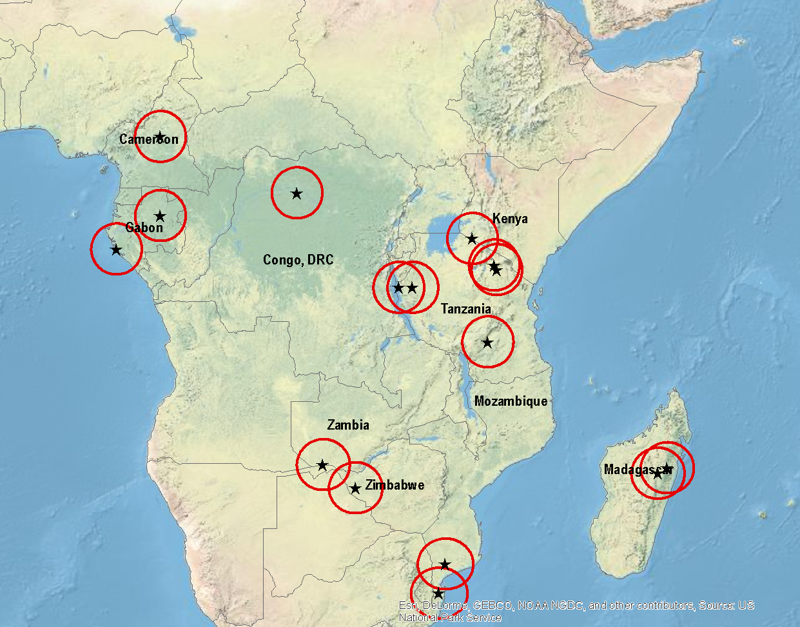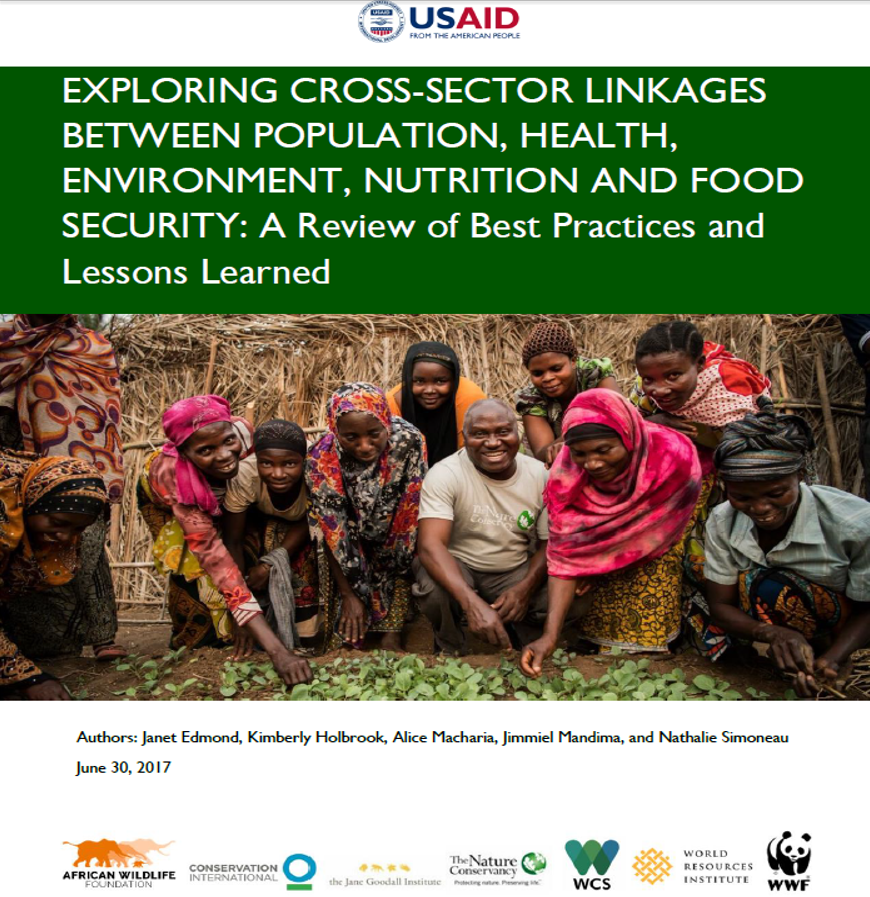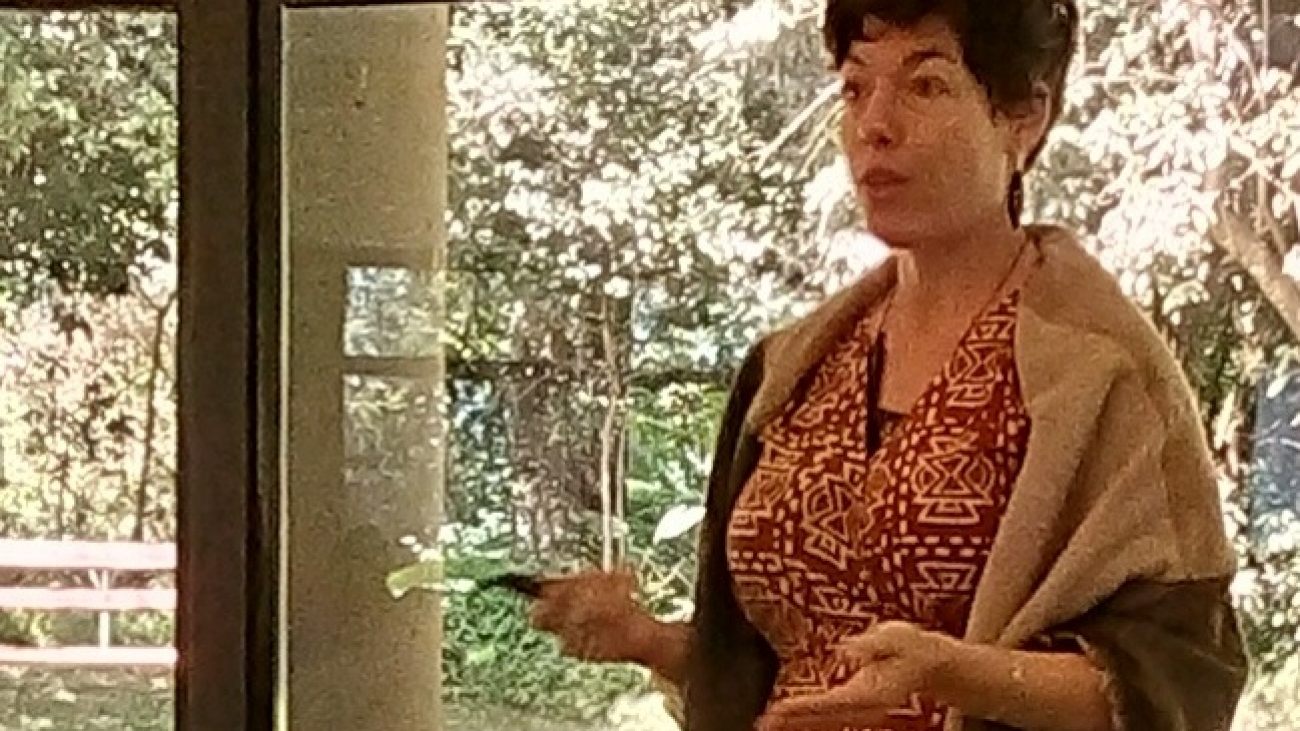 On October 30, 2017, Rebecca Goodman, Africa Biodiversity Collaborative Group (ABCG) Coordinator, and Evelyn Namvua, Communications and Engagement Officer, presented at the African Wildlife Foundation in Nairobi, Kenya on how ABCG is tackling complex conservation challenges by strengthening collaboration and leveraging resources across Africa. The seminar was part of the ABCG speaker series, which aims to foster information exchange and lesson sharing on diverse international development and conservation topics.
On October 30, 2017, Rebecca Goodman, Africa Biodiversity Collaborative Group (ABCG) Coordinator, and Evelyn Namvua, Communications and Engagement Officer, presented at the African Wildlife Foundation in Nairobi, Kenya on how ABCG is tackling complex conservation challenges by strengthening collaboration and leveraging resources across Africa. The seminar was part of the ABCG speaker series, which aims to foster information exchange and lesson sharing on diverse international development and conservation topics.
Who we are and what we do
ABCG is a community of conservation practitioners who share knowledge and co-develop innovative approaches in order to identify and address emerging and high priority conservation issues across Sub-Saharan Africa. ABCG was formed in the late 1990s as a structured collaboration in order to achieve substantial impact on a large scale.
By accessing the wide-ranging networks of its members, ABCG is in a unique position to inform and influence conservation practice by developing, testing, and promoting new practices and approaches. Members share their experiences and work together to translate their knowledge into practical tools and guides to address conservation challenges, inform policy, and integrate biodiversity conservation into international development agendas.
Thematic activity areas
In ABCG’s current Phase II from 2015-2018, our mission is pursued within the context of five thematic foci critical to effective conservation efforts. Each area is addressed through thematic working groups and their partners by 1) analyzing critical issues affecting Africa’s biodiversity conservation efforts; 2) designing and implementing pilot studies to test innovative approaches for addressing those issues, and; 3) synthesizing collective lessons from field activities to share with a multi-sector community for data-driven decision making and integration.
- Land and Resource Tenure Rights: enabling more effective conservation by developing and testing tools that place greater land and resource management authority in the hands of local resource users in three critical ecosystems in Democratic Republic of Congo and Tanzania.
- Land Use Management: developing spatially-explicit scenario analysis and guidelines for application in four priority landscapes in Democratic Republic of Congo, Madagascar, Republic of Congo, and Tanzania. This working group aims to better understand the drivers of landscape change, develop a range of future scenarios, and strategies for integrating conservation planning into sustainable economic development.
3. Managing Glo
- Global Health Linkages to Conservation: Population Health and Environment (PHE) and Fresh-Water Sanitation and Hygiene (FW-WASH). The PHE working group is increasing the effectiveness of biodiversity conservation by emphasizing synergies that integrate biodiversity with actions that contribute to improving global health in Tanzania and Cameroon. The WASH working group is building African capacity to conserve freshwater biodiversity resources while improving human well-being through an integrated conservation and development approach in South Africa and Uganda.
- Emerging Issues: employing a small grants mechanism to respond to emerging issues that are likely to shape conservation priorities in the coming years, and influence the effectiveness of biodiversity conservation efforts in Africa.
Knowledge sharing

ABCGs communications and outreach efforts are focused on raising awareness of the coalition’s collective activities, as well as high-priority conservation issues, and to deepen stakeholder engagement by convening multi-sector actors to catalyze discussion and grow communities of practice. The speaker series serves to highlight conservation issues and provides a platform for sharing success stories, lessons learned and best practices with cross-context applicability. ABCG also disseminates knowledge through its digital platforms including abcg.org, social media channels (Twitter, Facebook), LinkedIn and distribution list.
Click here to view the presentation slides: Tackling complex conservation challenges by strengthening collaboration and leveraging resources across Africa

